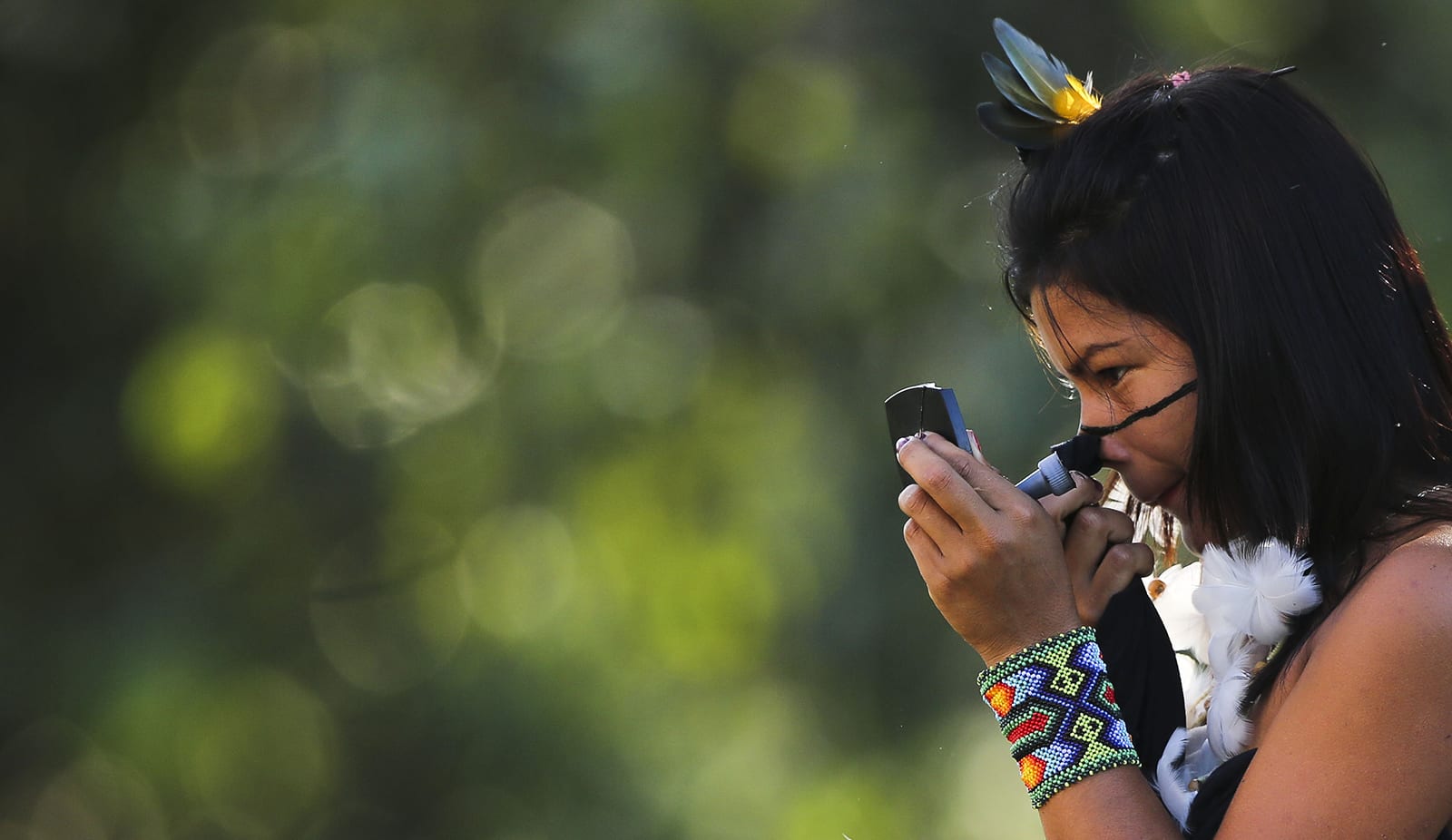
The Forest Is Our Future
Protecting the sovereignty of the Yawanawá People for the benefit of their culture, the forest they steward, and its role in producing life-giving services for us all.
This is Our Impact
WILD’s community of donors helps sustain the Yawanawá culture and empower their ability to protect the rainforest. This is one aspect of WILD’s mission to build communities and coalitions around the world capable of punching above their weight for conservation.
WILD works at the discretion of the Yawanawá Leadership Council, led by Chief Tashka, to help them implement their Life Plan, which includes numerous provisions for the forest upon which they depend for their survival.
In 2023, WILD supported a Yawanawá delegation to Brazil’s capital, Brasilia, to lobby for the official recognition of their 187,000 hectares of rainforest, which was formally approved in September of the same year. This grants sovereignty to the Yawanawá and increased ecological protection for the forest.
Explore our impact report to see more about how WILD is supporting the Yawanawá.
These Are The Species
Yawanawá Territory is a bastion of biodiversity. During the rainy season, the rare Amazonian river dolphin makes its way into the southern channels of the Rio Gregório, sharing the river’s bounty alongside subsistence fishermen. Lichen-clad mahogany trees stretch skyward over a relatively dense population of the elusive black jaguar – prowling the forest floor for the wild peccaries, from which the Yawanawá People derive their name: People of the wild boar.
Jaguar Facts
Size: As the largest cat in the Americas the adult jaguar can be anywhere from 6-9 feet long.
SHOW MORE
Legend: Jaguars are the guides for the most powerful spiritual leaders in the rainforest.
Threats: Habitat loss drives jaguar population decline, with only 50% of their traditional range remaining, jaguars have seen a precipitous drop in population
Population: Jaguars are found across the Americas with a global population of around 64,000. Half of these are in Brazil.
Mahogany Tree Facts
Height: 75 feet in height with a 50-foot-spread and leaves around 20 inches wide.
SHOW MORE
Life span: 350 years.
Climate impacts: Mahogany trees remove more carbon from the atmosphere than any other tree species (296 kilograms per year).
Left in the wild: Brazil’s “mahogany belt” covers some 80 million hectares of the Brazilian Amazon.
Decline: Unfortunately, mahogany has fallen victim to widespread deforestation, leading to a 30% decline in population over the past 30 years, leaving this tree endangered.
Pink River Dolphin Facts
Size: The pink river dolphin has the largest body and brain of any fresh water dolphin reaching up to 9 feet long.
SHOW MORE
Left in wild: This species is considered to be critically endangered with a population of slightly over ten thousand.
Decline: Since the 1980s, their population numbers have plummeted by 73% due to increases in water infrastructure, unsustainable fishing, and pollution that threaten their existence.
Climate impact: Climate change is also threatening this species as rivers dry in Brazil, reducing the dolphins habitat.
The History
Against great odds, the Yawanawá people are a come-back story.
As a boy, the Yawanawá Chief, Tashka, was removed by his father from the remote village of his birth, to escape the disease and declining well-being of his people. He went to school, learned Portuguese and some English while he also experienced the world outside the forest. In the meantime, his father led the small tribe as it became the first Indigenous group in Brazil to successfully lobby the government for official recognition of their land, and they were formally awarded 92,000 hectares in 1984.
SHOW MORE
Tashka decided to return to the community and accept his responsibilities as one the youngest chiefs in tribal history. With barely 600 people scattered across six remote villages, living entirely off the land and a small amount of agriculture, the Yawanawá and their culture were teetering on the edge of survival. And yet, they had their forest, and their traditional knowledge.
By 2003 he had engineered one of the first agreements between an Indigenous group and a major corporation to legitimize and establish compensation for a mutually beneficial working relationship.
And the Yawanawá community grew, now with some 1600 members spread across numerous villages with one central village Novo Esperanza (New Hope) as a unifying location. Tashka and his wife Laura Soriano created a unique Yawanawá Life Plan to strengthen their culture, encourage sustainability, and protect their forest against a rising tide of illegal logging, mining and ranching.
Visualizing The Data
The WILD Foundation is committed to protecting the sovereignty of the Yawanawá People for the benefit of their culture, the forest they steward, and its role in producing life-giving services for us all.
Since 2000, the Yawanawá population has quadrupled and WILD is now helping serve 1,600 people across 15 communities.
Yawanawa territory encompasses 187,000 hectares of protected rainforest, equaling about half the size of Rhode Island.
This area of rainforest stores 46,750,000 tons of carbon which is equivalent to 10 million cars worth of carbon emissions per year.
Multiplying Your Impact
Help us protect 187,000 hectares of rainforest, 10 million cars worth of carbon, 1,600 people, and dozens of jaguars. Enter an amount to see what your investment can do!